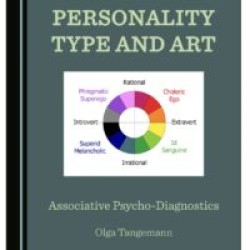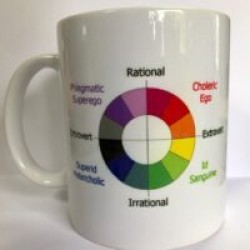Thomas Henry Huxley was one of the first adherents to Darwin’s theory of evolution by natural selection, and did more than anyone else to advance its acceptance among scientists and the public alike. As is evident from the letter quoted above, Huxley was a passionate defender of Darwin’s theory — so passionate that he has been called “Darwin’s Bulldog”. But Huxley was not only the bulldog for Darwin’s theory, but was a great biologist in his own right, who did original research in zoology and paleontology. Nor did he slavishly and uncritically swallow Darwin’s theory; he criticized several aspects of it, pointing out a number of problems. Read more.
I.Weisband, Working Materials, 1986. Translated by Dmitri Lytov, edited by Lev Kamensky, 2002
A Don Juan. He gauges various virtues and talents in the people he meets and cannot hold back from reporting his observations to them with great enthusiasm. Often other people mistake his display of emotions for his real feelings, which earns him the reputation of a Don Juan. In fact, he is quite conservative in his feelings, attached to a close circle of his friends, whose opinions hold great weight for him and totally determine his mood, behavior, and knowledge. If he really is a playboy, he does not hide it.
Sensitive. His speech is often romantic, his smiles are enticing, but very often that’s as far as it goes. His motto is ‘emotional power over all and sexual freedom from all’.
“Modest”. As a rule, he is not ambitious, because he can enjoy the circle of his friends and the anticipation of something interesting. Unlike The Politician, who likes to be an obvious ruler of the situation, he prefers to be its covert ruler. And his influence is directed first of all towards making other people reveal their skills and talents.
A scientist. He is sensitive about how others evaluate his mental skills. Often he strives to get a degree in higher learning, achieve scientific recognition and awards: this gives him the opportunity to work with a clear conscience (without having to doubt his qualifications). He is touchy when other people criticize ideas that he holds dear, or deny him and his friends’ talents. This is why he prefers the company of those who share his beliefs.
A person of mood. His mood determines everything: plans for the future, self-estimation, and ideas about the world. Ambitious plans can change to disappointment and sadness; but interesting news, praise, or an unexpected interesting opportunity immediately lifts his spirits. Boredom can even make him ill.
Altruistic. He is ready to help other people in solving their personal problems. The greatest pleasure for him is to find a way out from the situation that others consider hopeless. He is capable of demonstrating friendliness and benevolence to all. However, he saves his real efforts for about whom he is serious, and in this case he does much more than people ever expect from him and more than he himself promises.









